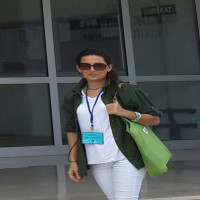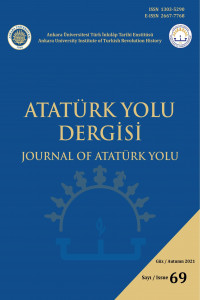Research Article
Aim & Scope
Being published biannually since 1988, the Journal of Atatürk Yolu aims to convey original historical researches on social, cultural, political and economic fields of Turkey during the National War of Independence and the Republic Period, to the society, especially to the academic circles.
The journal includes archival studies, researches which can bring new interpretations to the Modern Turkish historiography, critical analyzes that can contribute theoretically and methodologically to the field, studies on Turkish modernization process from the Ottoman Empire to the Republic Period, book reviews and article translations on the field
Author Guidelines
PRINCIPLES ON THE WRITING RULES
Manuscripts sent to the Journal of Atatürk Yolu for publication should be prepared using the Article Template. Due to double blind peer review, the identity and contact information of the author(s) should not be included in the manuscript template.
The manuscript should be arranged as Abstract, Introduction, Chapters, Conclusion, Bibliography and Appendix. Extended Abstracts are also requested for Turkish articles after the evaluation process is approved. Extended Abstract should contain the purpose, method and conclusion of the article and should consist of 600-800 words.
NOTE: Extended Abstract is not required during submission.
REFERENCES AND BIBLIOGRAPHY
References should be in accordance with Chicago Manual of Style. Authors are required to edit footnotes and create bibliography based on the examples below.
Detailed information is available at http://www.chicagomanualofstyle.org/tools_citationguide/citation-guide-1.html. The examples given below are the adaptation of the Chicago Manual of Style method to the Journal of Atatürk Yolu.
EXAMPLES:
FF: First footnote SF: Subsequent/short footnotes B: Bibliography
NOTE: In the subsequent/short footnotes “ibid (mentioned work)” or any abbreviation like this should not be used. If the title of the reference is long, it should be shortened. Examples are below.
Book (one, two or more authors):
FF: Temuçin Faik Ertan, Kadrocular ve Kadro Hareketi, Ankara: Kültür Bakanlığı Yayınları, 1994, 241.
SF: Ertan, Kadrocular, 241.
B: Ertan, Temuçin Faik. Kadrocular ve Kadro Hareketi. Ankara: Kültür Bakanlığı Yayınları, 1994.
FF: İlhan Tekeli, Selim İlkin, Cumhuriyetin Harcı, Köktenci Modernitenin Doğuşu, İstanbul: İstanbul Bilgi Üniversitesi Yayınları, 2010, 55.
SF: Tekeli, İlkin, Cumhuriyetin Harcı, 55.
B: Tekeli, İlhan, Selim İlkin. Cumhuriyetin Harcı, Köktenci Modernitenin Doğuşu. İstanbul: İstanbul Bilgi Üniversitesi Yayınları, 2010.
FF: Temuçin F. Ertan, Hakan Uzun, Mustafa Toker, Türk İnkılap Tarihi Enstitüsü Arşiv Belgelerinde Milli Mücadele Yıllarında İstanbul’dan Anadolu’ya Silah ve Cephane Sevkiyatı (M.M. Grubu Ekseninde) 2 Mayıs 1921-31 Aralık 1921, Vol. I, Ankara: Ankara Üniversitesi Yayınları, 2019, 65.
SF: Ertan, et al, Milli Mücadele Yıllarında, 65.
B: Ertan, Temuçin F., Hakan Uzun, Mustafa Toker. Türk İnkılap Tarihi Enstitüsü Arşiv Belgelerinde Milli Mücadele Yıllarında İstanbul’dan Anadolu’ya Silah ve Cephane Sevkiyatı (M.M. Grubu Ekseninde) 2 Mayıs 1921-31 Aralık 1921. Volume I. Ankara: Ankara Üniversitesi Yayınları, 2019.
Book (if there is a translator/editor in addition to the author):
If there is an editor, then one should cite it as “Ed.” instead of “Trans.” in footnotes; as for the bibliography “Edited by” instead of “Translated by”.
FF: Bernard Lewis, Modern Türkiye’nin Doğuşu, Trans. Metin Kıratlı, Ankara: TTK, 9. Edition, 2004, 78.
SF: Lewis, Modern Türkiye’nin Doğuşu, 78.
B: Lewis, Bernard. Modern Türkiye’nin Doğuşu. Translated by Metin Kıratlı. Ankara: TTK, 9. Edition, 2004.
Book Chapter:
FF: Hakan Uzun, “Atatürk Döneminde İzlenen Kültür Politikasına Genel Bir Bakış”, Cumhuriyetimizin Kültür ve Eğitim Politikaları, Ed. Fatma Bıkmaz, Ankara: Ankara Üniversitesi Eğitim Bilimleri Fakültesi Yayınları, 2017, 209-222.
SF: Uzun, “Atatürk Döneminde”, 221.
B: Uzun, Hakan. “Atatürk Döneminde İzlenen Kültür Politikasına Genel Bir Bakış”, Cumhuriyetimizin Kültür ve Eğitim Politikaları. Edited by Fatma Bıkmaz. Ankara: Ankara Üniversitesi Eğitim Bilimleri Fakültesi Yayınları, 2017: 209-222.
Journal Article:
FF: Necdet Aysal, “Osmanlı Donanma Cemiyeti’nin Sosyal ve Kültürel Çalışmalarına Bir Örnek: Osmanlı Denizcilik Yurdu”, Journal of Atatürk Yolu, 67 (2020), 41-74.
SF: Aysal, “Osmanlı Donanma Cemiyeti’nin”, 41.
B: Aysal, Necdet. “Osmanlı Donanma Cemiyeti’nin Sosyal ve Kültürel Çalışmalarına Bir Örnek: Osmanlı Denizcilik Yurdu”, Journal of Atatürk Yolu. 67 (2020): 41-74.
Journal Article (electronic):
FF: Kadri Unat, “Cumhuriyet'in On Beşinci Yıl Dönümü Kutlamaları: Başkent Ankara Örneği", Turkish Studies, 16/2 (2021), 773-787, doi.org/10.7827/TurkishStudies.49164, Accessed 16.06.2021.
SF: Unat, “Cumhuriyet'in On Beşinci Yıl Dönümü”, 773.
B: Unat, Kadri. “Cumhuriyet'in On Beşinci Yıl Dönümü Kutlamaları: Başkent Ankara Örneği", Turkish Studies. 16/2 (2021): 773-787. doi.org/10.7827/TurkishStudies.49164. Accessed 16.06.2021.
Newspaper Article:
FF: Mümtaz Faik Fenik, “Dünya Harbi Bitti”, Ulus, 15 August 1945, 1.
SF: Fenik, “Dünya Harbi Bitti”, 1.
B: Fenik, Mümtaz Faik. “Dünya Harbi Bitti”, Ulus. 15 August 1945.
Encyclopedia Entry:
FF: Sina Akşin, “İttihat ve Terakki”, Tanzimat’tan Cumhuriyet’e Türkiye Ansiklopedisi, Vol. 5, İstanbul: İletişim Yayınları, 1985, 1422-1435.
SF: Akşin, “İttihat ve Terakki”, 1422.
B: Akşin, Sina. “İttihat ve Terakki”, Tanzimat’tan Cumhuriyet’e Türkiye Ansiklopedisi. Volume 5, İstanbul: İletişim Yayınları, 1985: 1422-1435.
Thesis or Dissertation:
FF: Çiğdem Kılıçoğlu Cihangir, İkinci Meşrutiyet'ten Milli Mücadele'ye Anadolu'da Sosyo-Ekonomik ve Kültürel Boyutlarıyla Rum Örgütlenmeleri (1908-1922), PhD Diss., Ankara University Institute of Turkish Revolution History, 2017, 147.
SF: Kılıçoğlu Cihangir, İkinci Meşrutiyet'ten, 147.
B: Kılıçoğlu Cihangir, Çiğdem. İkinci Meşrutiyet'ten Milli Mücadele'ye Anadolu'da Sosyo-Ekonomik ve Kültürel Boyutlarıyla Rum Örgütlenmeleri (1908-1922). PhD Diss., Ankara University Institute of Turkish Revolution History, 2017.
Archive Document:
FF: T.C. Cumhurbaşkanlığı Devlet Arşivleri Başkanlığı Cumhuriyet Arşivi (BCA), 30-10-0-0.6-32-38, (28.11.1923).
SF: BCA, 30-10-0-0.6-32-38, (28.11.1923).
B: T.C. Cumhurbaşkanlığı Devlet Arşivleri Başkanlığı Cumhuriyet Arşivi (BCA).
Website Content:
FF: https://www.aa.com.tr/tr/pg/foto-galeri/ankara-universitesi-radyosu-dunyaya-19-mayis-ozel-yayini-yapacak-. Accessed 16.06.2021.
SF: https://www.aa.com.tr/tr/pg/foto-galeri/ankara-universitesi-radyosu-dunyaya-19-mayis-ozel-yayini-yapacak-. Accessed 16.06.2021.
B: https://www.aa.com.tr/tr/pg/foto-galeri/ankara-universitesi-radyosu-dunyaya-19-mayis-ozel-yayini-yapacak-. Accessed 16.06.2021.
Ethical Principles and Publication Policy
Ethical Principles
1- Regarding ethical principles values, the Journal of Atatürk Yolu takes into account the criteria determined by the COPE (Committee of Publication Ethics) and the principles determined in the YÖK (Council of Higher Education) Scientific Research and Publication Ethics Directive.
2- For researches requiring ethics committee permit, approval of ethics committee is obligatory. This approval should be stated and documented in the article.
3- Manuscripts sent to the journal, yet detected as against the rules of research and publication ethics during the evaluation process will be rejected. If any contradiction is found out after the publication process, the article will be removed from the publication.
4-If the manuscript derived from a thesis is not two-authored (supervisor-student), a statement of renounce must be received from the thesis supervisor.
5- Authors' Responsibility: The author ensures that the manuscript submitted to the journal is in accordance with the ethical rules, publication principles and writing rules adopted by the journal.
6- Referees’ Responsibility: The referee evaluates the manuscript by taking into account the principles determined by COPE and submits the report containing his/her opinions about the manuscript to the editorial board within the given time.
7- Editors' Responsibility: Editor;
• conducts the evaluation process of manuscripts submitted to the journal in a fair manner without any regard to religion, language, race, gender, nationality, seniority or institutional relationship,
• does not share the referee evaluation process with third parties by keeping it confidential,
• takes into account the COPE guidelines in terms of compliance of the evaluation process with ethical standards,
• provides the necessary cooperation and coordination to complete the evaluation process within the given time,
• applies the sharing of information with the Editorial Board regarding the evaluation and publication processes within the framework of COPE guidelines,
• complies with the standards set by COPE when duplicate publication, slicing, plagiarism, fictitious data, conflict of interest and suspicion of unfair authorship arise regarding a manuscript submitted to the journal for publication or published in previous issues.
Publication Principles
1- The Journal of Atatürk Yolu (JOAY) is published biannually in Spring (May) and Autumn (November) by Ankara University, Institute of Turkish Revolution History.
2- The JOAY adopts the open access policy.
3- The language of the journal is Turkish and English. Manuscripts written in other languages and sent to the journal are evaluated with the approval of the Editorial Board.
4- No payment is requested from the authors who submit manuscripts to the journal and no royalties are paid to the authors.
5- If the authors submit their manuscripts to the journal, it means that they accept the JOAY's publication principles.
6- Manuscripts submitted to the journal must not have been published elsewhere or sent elsewhere for publication. Manuscripts should be prepared in accordance with scientific research criteria and publication ethics. The JOAY owns all publication rights from the moment the manuscripts are accepted.
7- Manuscripts sent to the journal are evaluated on condition that they comply with the spelling rules. The evaluation period of the manuscripts is three months on average. After the manuscripts are checked with the iThenticate Plagiarism Program, they are evaluated by the Editorial Board and sent to the referees, and in line with the reports from the referees, it is decided to print / request / reject the manuscripts.
8- An extended abstract in English is requested for articles in Turkish after evaluation process is approved.
9- After approval process, the manuscripts are published with the acceptance of at least eight members of the Editorial Board.
Price Policy
No payment is requested from the authors who submit manuscripts to the journal and no royalties are paid to the authors.
Indexes
Journal Boards
EDITOR

LANGUAGE EDITOR

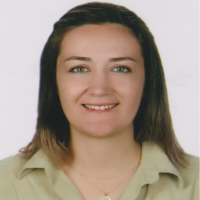
FIELD EDITOR



1988 yılında askerlik görevini tamamlayan Aysal, 1989-1997 yılları arasında Genelkurmay Askeri Tarih ve Stratejik Etüt Başkanlığı bünyesinde “Osmanlıca Bilir Tarih Uzmanı” olarak göreve başlamış ve Başkanlık bünyesinde yer alan “Türk Askeri Tarih Komisyonu Genel Sekreterliği”nde görev yapmıştır. 1997 yılında Ankara Üniversitesi Türk İnkılâp Tarihi Enstitüsü’nde “Araştırma Görevlisi” olan Aysal, aynı Enstitüde 1998 yılında “Yüksek Lisans” ve 2004 yılında ise “Doktora” çalışmasını tamamlamıştır.
Türk İnkılâp Tarihi Enstitü’nde 2005-2013 yılları arasında Öğretim Görevlisi-Doktor, 2013-2016 yılları arasında Yardımcı Doçent ve 2016-2021 yılları arasında ise Doçent Dr. Unvanı ile öğretim üyesi olarak görev yapmıştır. 18 Mart 2022 tarihinde Profesör unvanını alan Aysal, 2007 tarihinden itibaren de Türk İnkılap Tarihi Enstitüsü’nde Müdür Yardımcılığı görevini yürütmektedir. İngilizce ve Osmanlıca bilen Aysal, evli ve iki çocuk babasıdır.

Publication Committe

He completed his primary and secondary education in Ankara. He completed his master's degree at Atatürk University Atatürk Principles and Revolution History Institute with the thesis "The Effect of Turkish Associations in Germany on Turkey-EU Relations". After completing his doctorate program at Ankara University Turkish Revolution History Institute with the thesis "Political Organizations of Turkish Cypriots during the British Administration (1923-1960)", he worked in the academic staff of Cyprus Science University operating in the Turkish Republic of Northern Cyprus (TRNC). He founded and directed the Center for Research. He was awarded the title of Associate Professor in 2021 by the YÖK Inter-University Board. He still works as the founding director of the Center for Turkish Cypriot History Studies at Başkent University.
 Web
Web


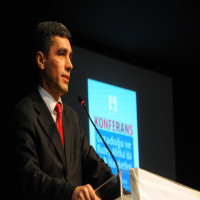


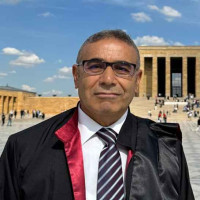
Dil ve Tarih Coğrafya fakültesi tarih bölümü mezunu. Türk inkilap tarihi enstitüsü'nde master ve doktıra eğitimi aldı. Kocaeli'nde yaşiyor

 Web
Web

1988 yılında askerlik görevini tamamlayan Aysal, 1989-1997 yılları arasında Genelkurmay Askeri Tarih ve Stratejik Etüt Başkanlığı bünyesinde “Osmanlıca Bilir Tarih Uzmanı” olarak göreve başlamış ve Başkanlık bünyesinde yer alan “Türk Askeri Tarih Komisyonu Genel Sekreterliği”nde görev yapmıştır. 1997 yılında Ankara Üniversitesi Türk İnkılâp Tarihi Enstitüsü’nde “Araştırma Görevlisi” olan Aysal, aynı Enstitüde 1998 yılında “Yüksek Lisans” ve 2004 yılında ise “Doktora” çalışmasını tamamlamıştır.
Türk İnkılâp Tarihi Enstitü’nde 2005-2013 yılları arasında Öğretim Görevlisi-Doktor, 2013-2016 yılları arasında Yardımcı Doçent ve 2016-2021 yılları arasında ise Doçent Dr. Unvanı ile öğretim üyesi olarak görev yapmıştır. 18 Mart 2022 tarihinde Profesör unvanını alan Aysal, 2007 tarihinden itibaren de Türk İnkılap Tarihi Enstitüsü’nde Müdür Yardımcılığı görevini yürütmektedir. İngilizce ve Osmanlıca bilen Aysal, evli ve iki çocuk babasıdır.
ADVISORY BOARD
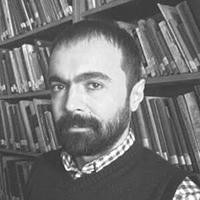


Prof. Dr. SÜLEYMAN İNAN
Pamukkale Üniversitesi Eğitim Fakültesi Sosyal Bilgiler Eğitimi Bölümü’nde öğretim üyesidir. Akademik kariyeri sürecinde Marmara, Ege, Pamukkale ve Süleyman Demirel Üniversitelerinden dersler aldı. 2013’te Türkiye Cumhuriyeti Tarihi bilim dalında profesör oldu. Aynı yıl, kısa bir süre YÖK bursuyla İngiltere’de misafir araştırmacı olarak bulundu. Bilimsel ve kamu yararı gözeten bazı projelerin içinde yer aldı. Bunlardan yürütücülüğünü üstlendiği bir bilim okulu projesi olan KÜBİY (Küçük Bilim İnsanları Yetişiyor) TÜBİTAK etiketi aldı. “Adnan Menderes Müzesi”nin akademik danışmanlığını yaptı.
Disiplinler arası çalışmayı seven ve kendisini daha çok bir sosyal bilimci olarak gören İnan’ın çalışma alanı çoğunlukla tarih, siyaset ve eğitim üçgeninde gezindi. Adnan Menderes (Liberte Yay.), Necip Ali Küçüka (Atatürk Araştırma Merkezi Yay.) ve İsmet İnönü’nün (Türkiye’nin 1950’li Yılları ve Türkiye’nin 1960’lı Yılları kitabı içinde, İletişim Yay.) biyografilerini yazdı. Yakın Dönem Türk Politik Tarihi (Anı Yay.), İnkılap Dersleri (Kafka Kitabevi Yay.), Sosyal Bilgiler Eğitimine Giriş (Anı Yay.), Popüler Tarih Sözlüğü (Adres Yay.), Siyaset Okuryazarlığı (Yeni İnsan Yay.), Epigram (Liman Yayınları), Ne Gerek Var Sosyal Bİlimlere?-İnsan ve Toplum Bilimleri Üzerine Sorgulamalar (Paradigma Yay.) kitaplarının hem editörlüğünü hem de yazarlığını yaptı.
Middle Eastern Studies, History Studies, Türkiye Günlüğü, New Perspectives on Turkey, Bilgi&Bellek gibi dergilerde yayımlanmış makaleleri bulunmaktadır.
Çocuk ve gençlere yönelik bir eğitim materyali iddiasıyla çıkan Genç Bilgi: Siyaset (Doğan Egmont) kitabının yazarı olan İnan, SOs+a kısa adıyla siyaset okuryazarlığı üzerine seminer ve atölye eğitimlerini, geliştirdiği 4 modül (Çocuk-Öğretmen-Yetişkin ve Akademisyenler) üzerinden sürdürmeye devam ediyor. Ayrıca (www.siyasetokuryazarlik.com.tr) sitesinin kurucusu ve yöneticisidir.
 Web
Web

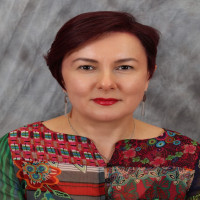
Nihada Delibegović Džanić PhD, is Full Professor of English Language and Linguistics at the University of Tuzla, Bosnia and Herzegovina. She teaches linguistics courses at undergraduate and postgraduate levels. She holds a PhD. in Linguistics from the University of Osijek, Croatia. Her main interests are cognitive linguistics, phraseology and ELT methodology.



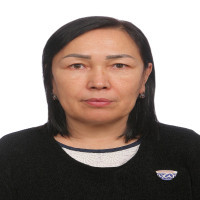

Professor Dr Neşe ÖZDEN
Ankara University, Ankara/TÜRKİYE
email:nozden@humanity.ankara.edu.tr; ozdennese53@gmail.com
work address: University of Ankara, Faculty of Language, History and Geography,
History Department, 06100 Sıhhiye-Ankara/TÜRKİYE.
Short Biography
Prof. Dr. Neşe Özden has worked at the History Department of the Faculty of Language and History-Geography (DTCF) at Ankara University since 1987.
Prof. Dr. Özden has been the Head of the Turkish Republican History Department, at the same faculty, since December 2010.
She was born in Amasya in 1964. She completed her primary, secondary and high school education in Ankara.
She graduated from the Department of Contemporary History at the “Faculty of Language and History-Geography at Ankara University” in 1985 with honors (90/100).
Professor Dr. Özden completed her doctorate at the School of Oriental and African Studies (SOAS), University of London in 1997.
She became the professor of Ankara University in 2009.
Professor Dr. Nese Ozden was the Ankara University "Senator" for three years, in 2021-2024. She was elected as the "Faculty Professor Representative" of Ankara University, Faculty of Language and History-Geography between 2012-2016. She was the "Head of the History Department" for three years between 2019-2022.
As a "visiting guest scholar" abroad, Prof. Dr. Özden gave lectures at various universities in "Bosnia-Herzegovina", "Estonia" and "Taiwan" for a total of 4 years (in 2004-2010).
(i). In BOSNIA-HERZEGOVINA; She has taught at Tuzla University in the city of Tuzla (via the Turkish Prime Ministrial TIKA, 2004-2006); and at Zenica University in the city of Zenica through the TIKA (2005-2006).
(ii). ESTONIA-Tallinn; Tallinn University, (through the TIKA) (one semester, 2006-2007).
(iii). TAIWAN-Taipei, the National Cheng-chi University; through the bilateral agreement between National Cheng-chi University and Ankara University (2009-2010).
====================================
Prof. Dr. Neşe Özden speaks English very well; Bosnian and Serbian at an intermediate level; and she has a working knowledge of Russian.
ENGLISH (1997-KPDS score:96, A/advanced)
BOSNIAN (2013-TÖMER score:72, B1/intermediate-4)
SERBIAN (2014-YDS score:50)
RUSSIAN (beginner)
======================================
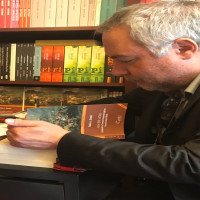
ASSOCIATE PROFESSOR FABIO L. GRASSI
ESSENTIAL CURRICULUM AND PUBLICATIONS
Born in Rome in 1963.
Summer scholarships to study in Turkey for the years 1985 and 1988. Degree in Arts, 1986. Scholarship for PhD from 1990 to 1993.
PhD, 1994 (thesis on “Italy and the Turkish Question 1919-1923: public opinion and foreign policy”). Winner of post-doctoral scholarship, 1997.
From 2005 to 2008 courses of Contemporary Turkish History for the master program in Mediterranean Civilizations and Societies, “Gabriele D’Annunzio” University of Chieti-Pescara, Italy.
From 2005 to 2009 Senior lecturer in the Department of Didactic of Foreign Languages (Faculty of Sciences of Education) of Yıldız Technical University - Istanbul;
In 2010 and 2011 Senior lecturer in the Department of Humanities and Social Studies (Faculty of Arts and Sciences).
Since December 2011 Assistant Professor in History of Eastern Europe in Sapienza University - Roma. Courses of History of Eurasia, History of Cooperation and Development, Turkish Language and Contemporary History (in English).
Enabled, in the call 2012, by the competent national commissions to be ASSOCIATE PROFESSOR in FOUR academic fields: Modern History, Contemporary History, Near East Cultures and History of International Relations;
Enabled, in the call 2016, by the competent national commissions to be ASSOCIATE PROFESSOR and FULL PROFESSOR in History of International Relations and to be ASSOCIATE PROFESSOR in Contemporary History.
From February 2013 to August 2015 Director of the BAU Center of Eurasian Studies in Sapienza University.
Since January 2015 Official Representative of the Rector of Sapienza University in the Executive Board of EURAS (Union of Eurasian Universities), later counselor for EURAS affairs.
In September 2015 visiting professor by al-Farabi University of Almaty (course on “European History and Culture from the Middle Age to the present days”).
Since December 2016 Counselor for the Iranian and Turkic countries in the governance of Sapienza University.
Junior Research Fellow of the Sapienza Superior School of Advanced Studies for the academic years 2020-2023.
Since June 2020 Editor in Chief of the new double-blind peer reviewed "EURAS Journal of Social Sciences".
Professorship honoris causa in Political Sciences from the International University of Struga (Macedonia).
Fully in service as ASSOCIATE PROFESSOR in History of Eastern Europe since 3 September 2019.
Some ninety publications in Italian - among them three great monographs, all translated in Turkish, one also in English - and more than ten publications in English or Turkish; participation to and/or organization of many conferences; many lectures (in Italian, English, Turkish and French); member of the commission charged by the Turkish State school authorities to draw up a curriculum in the Italian language for Turkish high schools; interpreter and translator; supervisor/editor of the translation in Turkish of 3 Italian books (2 novels and 1 history book), published in 2007; member of an editorial board; referee of various Turkish reviews; member of several scientific associations; participation to group researches funded by the Ministry of High Education or by Sapienza University.
Since 1 May 2023 ASSOCIATE PROFESSOR in History of International Relations.
KNOWLEDGE OF LANGUAGES:
Italian – Mother tongue;
English – Very Good (experience of teaching in this language)
Turkish – Very Good (experience of teaching in this language);
Azerbaijani Turkish – Good;
French – Good;
Romanian – Fair; Spanish - Fair
WORKS:
a) Monographs:
1. L’Italia e la Questione Turca 1919-1923. Opinione pubblica e politica estera, [Italy and the Turkish Question 1919-1923. Public Opinion and Foreign Policy], Torino Zamorani, 1996, pp. 270;
- İtalya ve Türk Sorunu 1919-1923. Kamuoyu ve dış politika, İstanbul, Yapi Kredı Yayınları, 2003, 2010 (Turkish translation);
2. Atatürk. Il Fondatore della Turchia Moderna [Atatürk. The Founder of Modern Turkey], Roma, Salerno, 2008, new edition 2020, pp. 444;
- Atatürk, İstanbul, Turkuvaz Kitap, 2009 (Turkish translation; reprint İstanbul, Doğan Kitap, 2018);
3. Noterelle sulla Lingua Turca [Short Notes about Turkish language], Vigevano, Micron, 2008, pp. 60;
4. Turchia e Balcani. Materiali per lo Studio degli Anni Recenti [Turkey and Balkans. Materials for the Study of the Recent Years], Cluj-Napoca, Napoca Star, 2012, p. 174;
5. Una Nuova Patria. L’Esodo dei Circassi verso l’Impero Ottomano [A new Homeland. The exodus of the Circassians towards the Ottoman Empire], Istanbul, ISIS, 2014, pp. 281;
- Yeni bir Vatan. Çerkeslerin Osmanlı İmparatorluğuna zorunlu Göçü (1864), İstanbul, Tarihçi Kitabevi, 2017 (shortened Turkish translation);
- A New Homeland. The massacre of the Circassians, their Exodus to the Ottoman Empire, their place in modern Turkey, Istanbul, Istanbul Aydın University Publications, 2018 (shortened English translation).
b) Editings:
1. Traduzione e Didattica. Contributi per l’Insegnamento dell’Italiano in Turchia [Translation and Didactic. Contributions for the teaching of Italian language in Turkey], pp. 34;
2. (together with Esra Danacıoğlu), Italia e Turchia tra Passato e Futuro. Un Impegno Comune, una Sfida Culturale [Italy and Turkey between Past and Future. A Common Aim, a Cultural Challenge], Roma, Edizioni Nuova Cultura, 2009, pp. 308;
3. (together with Roberto Sciarrone), I Bulgari e la Bulgaria in Europa [The Bulgars and Bulgary in Europe], Roma, Aracne, 2014, pp. 160;
4. Roma’ya Yürüşünün 100. Yılı. İtalya’da faşizmin iktidara gelişi [One hundred years after the March to Rome. The rise to power of fascism in Italy], monographic dossier, “Toplumsal Tarih” [Social History], n. 346, Ekim [October] 2022, pp. 44-60;
5. (together with Fulvio Bertuccelli and Mihaela Gavrila), Minorities and Diasporas in Turkey: public images and issues in education, Roma, Sapienza Università Editrice, 2023.
c) Proceedings of conferences and Contributions to books:
1. La Definizione dei Confini della Turchia, 1919-1974 [The Settlement of Turkey’s Borders, 1919-1974], in Marta Petricioli / Alberto Tonini (eds.), Identità e Appartenenza in Medio Oriente [Identity and Belonging in the Middle East], Firenze, Università degli Studi di Firenze, Dipartimento di Studi sullo Stato, 1998, pp. 67-75;
2. L’Italia di fronte al Crollo della Pace di Sèvres: una Presunta Grande Potenza alla Prova (settembre-ottobre 1922) [Italy Facing the Collapse of the Peace of Sèvres: a Supposed Great Power Put to the Test (September-October 1922)], in George Cipaianu / Vasile Vesa (eds.), La fin de la Première Guerre mondiale et la nouvelle architecture gèopolitique européenne, Cluj-Napoca, Presses Universitaires de Cluj, 2000, pp. 95-106;
3. Turchia: Perdere un Impero, Sopravvivere come Stato [Turkey: to Lose an Empire, to Survive as a State], in Marco Dogo (ed.), Schegge d’Impero, Pezzi d’Europa. Balcani e Turchia fra Continuità e Mutamento 1804-1923 [Splinters of Empire, Pieces of Europe. The Balkans and Turkey Between Continuity and Change 1804-1923], Gorizia, Libreria Editrice Goriziana, 2006, pp. 215-241;
4. Sèvres e Losanna: Condanne Esplicite, Condanne Silenziose [Sèvres and Lausanne: Open Condemnations, Silent Condemnations], in Monica Ruocco (ed.), Pace e Guerra nel Medio Oriente in Età Moderna e Contemporanea. Atti del Convegno SeSaMO – Lecce 2004, Galatina, Congedo, 2008, vol. I, pp. 195-205;
5. Garibaldi e Garibaldini a Costantinopoli e nell’Impero Ottomano: Conoscenze Attuali, Piste per Future Ricerche [Garibaldi and Garibaldians in Costantinople and Ottoman Empire: Today Knowledge, Paths for Future Researches], in Stefania Bonanni (ed.), Garibaldi: Cultura e Ideali. Atti del LXIII Congresso di Storia del Risorgimento (Cagliari, 11-15 ottobre 2006) [Garibaldi: Culture and Idealities. Proceedings of the LXIII Congress of History of Risorgimento (Cagliari, 11-15 October 2006)], Roma, Istituto Per la Storia del Risorgimento Italiano, 2008, pp. 419-440;
6. Da un Altro Stretto. L’Eco del terremoto di Messina a Istanbul [From Another Strait. The Echo of Messina Earthquake in Istanbul], in Giovanna Motta (ed.), La Città Ferita. Il Terremoto dello Stretto e la Comunità Internazionale [The Wounded City. The Strait Earthquake and the International Community], Milano, FrancoAngeli, 2008, pp. 150-158;
7. Insegnare Insieme Lingua e Contenuti Letterari [Teaching Together Language and Literatury Texts], in Fabio L. Grassi (ed.), Traduzione e Didattica. Contributi per l’Insegnamento dell’Italiano in Turchia, İstanbul, Yıldız Teknik Üniversitesi Yayınları, 2009, pp. 15-20;
8. Gli Ottomani e i Secoli delle Conquiste nelle Pagine degli Osservatori Occidentali [The Ottomans and the Centuries of the Conquests in the Pages of the Western Observers], in Esra Danacıoğlu / Fabio L. Grassi (eds.), Italia e Turchia tra Passato e Futuro. Un Impegno Comune, una Sfida Culturale, Roma, Edizioni Nuova Cultura, 2009, pp. 55-68;
9. Atatürk’ün Eserinin Yorunmlanmasına Yabancı Bilim Adamlarının Katkısı [The Contribution of the Foreign Men of Culture in the Intepretation of Atatürk], in Türkiye Barolar Birliği [Union of the Turkish Lawyers], Uluslararası Atatürk’ü Çağdaş Yorumlama ve Anma Programı – 1. XXI. Yüzyılda Atatürk’ü Düşünmek [International Program of Contemporary Interpretation and Remembrance of Atatürk 1 - Thinking Atatürk in 21th Century], Ankara, Türkiye Barolar Birliği Yayınları, 2010, pp. 24-29;
10. Trablusgarp’tan Kurtuluş Savaşı’na İtalyan Politikasında İzmir [Smyrna in Italian Policy from Tripoli to the War of Liberation], in Oktay Gökdemir (ed.), Kuva-yı Milliye’nin 90. Yılında İzmir ve Batı Anadolu. Uluslararası Sempozyum Bildirileri 6-8 Eylül 2009 [Proceedings of the Symposium on Smyrna and Western Anatolia in the 90th Anniversary of the National Forces, 6-8 September 2009], İzmir, İzmir Büyükşehir Belediyesi, 2010, vol. I, pp. 94-106;
11. La perdita della Romania nella Memoria Storica Turca [The Loss of Romania in the Turkish Historical Memory], in G. Mandrescu / G. Altarozzi (coordinators), Imagine Reflectata. Momente de Istorie Comparata. Lucrările Sesiunii Italo-Române, Cluj-Napoca - Alba Iulia, 8-9 Septembrie 2008 [The Reflected Image. Moments of Compared History. Proceedings of the Italo-Romanian Session, Cluj-Napoca - Alba Iulia, 8-9 September 2008], Cluj-Napoca, Accent, 2010, pp. 54-61;
12. L’Adriatico per l’Impero Ottomano: un Limes e una Tentazione [The Adriatic Sea for the Ottoman Empire: a Limes and a Temptation], in Stefano Trinchese / Francesco Caccamo (eds.), Rotte Adriatiche. Tra Italia, Balcani e Mediterraneo [Adriatic Routes. Among Italy, Balkans and Mediterranean], Milano, FrancoAngeli, 2011, pp. 32-41;
13. In Turchia, Avventura e Incanto nella Steppa [In Turkey. Adventure and Spell in the Steppes] (editorial title), in Giovanna Motta (ed.), “Raccontami una Storia…”. Fiabe, Leggende e Miti nella Memoria dei Popoli [“Tell me Something…” Tales, Legenda and Myths in the Memory of the Peoples], Milano, FrancoAngeli, 2011, pp. 202-208;
14. Annotazioni sulla Storiografia Italiana in Tema di Turchia Contemporanea [Notes on Italian Historiography relating Contemporary Turkey], in Giovanna Motta (ed.), Studi sull’Europa Orientale. Un bilancio storiografico. Una nuova generazione di storici (1970-2010) [Essays on Eastern Europe. A historiographical balance. A new generation of historians (1970-2010)], Firenze, Passigli, 2012, pp. 73-79;
15. Nazione, Emancipazione, Modernizzazione. Halide Edip Adıvar e Yakup Kadri Karaosmanoğlu di fronte alla Rivoluzione Kemalista [Nation, Emancipation, Modernization. Halide Edip Adıvar and Yakup Kadri Karaosmanoğlu face to Kemalist revolution], in Giovanna Motta (ed.), L’Idea di Nazione e l’Impero fra Storia e Letteratura [Tha Idea of Nation and Empire between Hitory and Literature], Roma, Edizioni Nuova Cultura, 2013, pp. 109-116;
16. Niçin Trablusgarp? İtalyan Çıkarması arkasındaki Siyaset ve Kültür [Why Tripoli? Politics e Culture behind Italian landing], in Mehmet Ersan / Nuri Karakaş (eds.), Osmanlı Devleti’nin Dağılma Sürecinde Trablusgarp ve Balkan Savaşları 16-18 Mayıs 2011 / İzmir. Bildiriler [Tripoli and the Balkan Wars in the process of dissolution of the Ottoman State. 16-18 May Smyrna. Relations], Ankara, Türk Tarih Kurumu, 2013, pp. 37-47;
17. Le Guerre Balcaniche per i Turchi: “Non riaprire quella ferita!” [The Balkan Wars for Turks: "Don't reopen that wound!"], in Giuseppe Motta (ed.), Le Guerre Balcaniche e la Fine del “Secolo Lungo”. Atti del convegno di Târgu Mureş [The Balkan Wars and the end of the "Long Century". Proceedings of the conference held in Târgu Mureş], Roma, Nuova Cultura, 2013, pp. 117-141.
18. L’Oriente Ottomano e la Politica Napoleonica [The Ottoman East and Napoleon’s policy], in Giovana Motta (a cura di), L’Imperatore dei Francesi e l’Europa Napoleonica [The Emperor of the French and Napoleon’s Europe], Roma, Edizioni Nuova Cultura, 2014, pp. 195-210;
19. L'irrisolto Fattore Turco [The Unsolved Turkish Factor], in Gabriele Jori (a cura di), Contributi alla Tavola Rotonda "Verso una Comunità Euro-Mediterranea. L'Università per l'Europa. Verso l'Unione Politica". Sessione EuroSapienza [Contributions to the Round Table “Towards an Euro-Mediterranean Community. The University for Europe. Towards political union. EuroSapienza session], Roma, 20 marzo 2014, Roma, Università "La Sapienza", 2014, pp. 43-49;
20. An Anti-Nationalistic Dream: Ottomanism, in Antonello Biagini / Giovanna Motta (eds.), Empires and Nations from the Eighteen to the Twentieth Century, Newcastle, Cambridge Scholars Publishing, 2014, vol. I, pp. 74-82;
21. Kurtuluştan Sonraki Haftalarda İzmir’e Dair İtalyan Görüş ve Projeleri [Italian opinions and projects on Smirne in the Weeks following the Liberation] in Murat Alper Parlak (ed.), Kurtuluş ve Kuruluşun Sembol Kenti İzmir [Smirne, Symbol city of the liberation and refoundation], Ankara, Atatürk Araştırma Merkezi, 2015, pp. 125-140;
22. The Turkish Intellectuals and the Great War, in Antonello Biagini / Giovanna Motta (eds.), The Great War. Analysis and Interpretation, Newcastle, Cambridge Scholars Publishing, 2015, vol. II, pp. 179-188;
23. Europe and the Greater Asia in the Past and Now, in Materials of International Scientific-Theoretical Conference on Actual Problems of World History, November 19-20th, 2015, Almaty, Al-Farabi Kazakh National University, 2015, pp. 38-39;
24. Il Cibo dei Popoli Turchi e La Tavola dei Sultani [Food of the Turkic peoples and the table of the sultans], in Giovanna Motta (ed.), I tempi e i Luoghi del Cibo [Times and places of food], Roma, Edizioni Nuova Cultura, 2016, pp. 213-224;
25. Jews and Hebraism in Republican Turkey, in Giuseppe Motta (ed.), Dall'Antigiudaismo all'Antisemitismo. Saggi sulla questione ebraica fra XIX e XX secolo [From anti-judaism to anti-semitism Essays on the Jewish questionin XIX-XX centuries], Roma, Edizioni Nuova Cultura, 2016, pp. 127-143;
26. Ernesto Buonaiuti: İman, Hürriyet, Yalnızlık [Ernesto Buonaiuti: faith, freedom, loneliness], in Fulya Bayraktar (ed.), Hikmetin İzinde. Kenan Gürsoy'a Armağan [On the path of wisdom. Tribute to Kenan Gürsoy], Ankara, Aktif Düşünce Yayıncılık, 2016, pp. 617-621;
27. La Situazione nel Medio Oriente [The situation in the Middle East], in Ufficio Storico dello Stato Maggiore della Difesa (ed.), L'Italia e la Grande Guerra. 1916. Evoluzione geopolitica, tattica e tecnica di un conflitto sempre più esteso [Italy and the Great War. 1916. Geopolitical, tactical and technical evolution of an increasingly spreading conflict], proceedings of the conference held in the Gendarmerie Academy, 6-7 December 2016, Roma, Stato Maggiore della Difesa, 2017, pp. 47-63;
28. The Burden of Memory. The emergence of the past in the art of Chalayan, in Giovanna Motta / Antonello Biagini (eds.), Fashion through History: Costumes, Symbols, Communications, Newcastle upon Tyne, Cambridge Scholards Publishing, vol. II, 2017, pp. 298-305;
29. Invisible Scapegoats: the Turkish dönmes, in Giuseppe Motta (ed.), Dynamics and Policies of Prejudice from the Eighteenth to the Twenty-first Century, Newcastle upon Tyne, Cambridge Scholards Publishing, 2018, pp. 123-133;
30. I Fronti Mediorientale e Anatolico-caucasico [The Middle East and Anatolia-Caucasus fronts], in Ufficio Storico dello Stato Maggiore della Difesa (ed.), Il 1917. L'anno della svolta. Congresso di studi storici internazionali. Roma 25 - 26 ottobre 2017 [1917. The turning point year. Conference of international historical studies. Rome, 25-26 October 2017], Stato Maggiore della Difesa - CASD - Centro Alti Studi per la Difesa, 2018, pp. 347-362;
31. Russia e Turchia. Un passato non solo di inimicizia [Russia and Turkey. A past not consisting only in feud], in Gabriele Natalizia (ed.), La Russia e l’Occidente. Dinamiche politiche a cento anni dalla Rivoluzione d’Ottobre [Russia and the West. Political dynamics one hundred years after the October revolution], Milano, Vita e Pensiero, 2018, pp. 59-65;
32. On Turkish Historiography, in Andrea Ciampani / Romano Ugolini (eds.), The Great War. A European commitment of Research and Reflection, Roma – Soveria Mannelli, Istituto Storico del Risorgimento Italiano – Rubbettino, 2019, e-book, pp. 151-167;
33. La Moda lungo la Via della Seta [Fashion along the Silk Road], in Giovanna Motta (ed.), La Forza della Moda. Potere, rappresentazione, comunicazione [The force of fashion. Power, representation, communication], Roma, Edizioni Nuova Cultura, 2019, pp. 279-288;
34. Intellettuali Turchi e Dimensione Mediterranea [Turkish Intellectuals and Mediterranean Dimension], in Alberto Aghemo / Rossella Pace (eds.), Mediterraneo. Tradizione, patrimonio, prospettive. Una proposta per l’innovazione e lo sviluppo [Mediterranean. Tradition, heritage, perspecives. A proposal for innovation and development], Roma, Fondazione Giacomo Matteotti, 2019, pp. 115-125;
35. L'Italia e i Rapporti Interalleati nella Questione Turca [Italy and Inter-Allied Relations in the Turkish Question], in Ufficio Storico dello Stato Maggiore della Difesa (ed.), Il 1919. Un’Italia vittoriosa e provata in una Europa in trasformazione [1919. A victorious and wounded in an Europe under transformation], Roma, Ministero della Difesa, Roma, pp. 349-361;
36. Costantinopoli, Mosca e Dintorni. Dalla peste storica alle epidemie più recenti [Costantinople, Moscow and surroundings. From the historical plague to the most recent epidemic], in Giovanna Motta (ed.), Pandemie [Pandemics], Roma, Fondazione Giacomo Matteotti, pp. 85-95;
37. The Cultural and Political Claims of the Caucasian Minorities in Turkey, in Carlo Frappi / Paolo Sorbello (eds.), Eurasiatica 15. Armenia, Caucaso e Asia Centrale. Ricerche 2020, Venezia, Edizioni Ca' Foscari, 2020, pp. 224-236;
38. Ottoman Demographic Engineering before and during WWI, in Aleksandar Rastović / Andrea Carteny / Biljana Vučetić, War, Peace and Nation Building (1853-1918), Belgrade, The Institute of History Belgrade and Sapienza University of Rome, 2020, pp. 225-237;
39. Dove si Combatte: Anatolia [Where people fight: Anatolia], in Alessandro Vagnini (ed.), Tra il Bosforo e l'Egeo. La marina italiana e la fine dell'Impero Ottomano 1919-1923 [Between Bosphorus and Aegean. The Italian navy and the end of the Ottoman Empire 1919-1923], Roma, Ufficio Storico della Marina Militare, 2021, pp. 84-196;
40. La questione degli Stretti nel quadro delle relazioni turco-sovietiche tra 1919 e 1923 [The Question of the Straits in the frame of the of the Turkish-Soviet relations between 1919-1923], in Gianluca Borzoni / Barbara Onnis / Christian Rossi (a cura di), Momenti di Storia Internazionale del Novecento. Diplomazia geopolitica, soft power, cooperazione [Pages of international history in the XXth century. Geopolitical diplomacy, soft power, cooperation], Milano, FrancoAngeli, 2021, pp. 39-55;
41. Galatasaray, non solo una squadra di calcio [Galatasaray, not only a football team], in Giovanna Motta (ed.), Raccontare il Cambiamento. Cultura politica, contesti economico-sociali, casi di studio nella moda [Telling the change. Political culture, economic-social contexts, case studies in the field of fashion], Soveria Mannelli, Rubbettino, 2022, pp. 115-122;
42. Lo scambio di comunità tra Grecia e Turchia e l’azione di Nansen per conto della SdN [The exchange of communities between Greece and Turkey and Nansen’s action on behalf of the League of Nations], in Alessandro Vagnini (ed.), L’Italia e la Società delle Nazioni (1919-1929). Dinamiche di un nuovo sistema internazionale [Italy and the League of Nations (1919-1929). Dynamics of a new international system], Roma, Edizioni Nuova Cultura, 2022, pp. 63-92;
43. Brevi Note sugli Archivi in Turchia, con particolare riferimento alle relazioni internazionali [Short notes on the archives in Turkey, with particular reference to internatioanl relations], in Giovanna Motta (ed.), Documenti d’Archivio e Altre Fonti. La ricerca, il metodo, la memoria del passato [Archival documents and other sources. Research, method, memory of the past], Roma, Edizioni Nuova Cultura, 2022, pp. 115-121 and 261-263 (notes);
44. Un Burbero Poliedrico: Arnoldo Foà [A multifaceted curmudgeon], in August Ammerlaan et alii (eds.), Un Letterato in Viaggio: liber amicorum per Raniero Speelman [A traveling man of culture: liber amicorumin honor of Raniero Spellman], Rotterdam, Ridderprint, 2023, pp. 258-265.
d) Essays and articles:
1. Sokollu Mehmed Pascià, il Gran Visir di Solimano [Sokollu Mehmed Pasha, the Grand Vizir of Soliman], “Islàm”, year VII, January-March 1988 (editorial title), pp. 25-33;
2. Tentativo Cinquecentesco di un Canale Volga - Don nel Quadro dei Rapporti tra la Russia e l’Impero Ottomano [An Attempt to Build a Volga-Don Canal in the Context of Relations between Russia and the Ottoman Empire], “Islàm”, year VIII, October-Dicember 1989 (editorial title), pp. 253-263;
3. La Strana Alleanza: Turchia Kemalista e Russia Sovietica 1919-1922 [The Strange Alliance: Kemalist Turkey and Soviet Russia 1919-1922], “Annali dell’Istituto Ugo La Malfa”, volume V, 1989 (summary of degree thesis), pp. 173-196;
4. Il Kemalismo: un’Esperienza fuori dagli Schemi [Kemalism: an Experience outside the Pattern], “Annali dell’Istituto Ugo La Malfa”, volume VI, 1990-91, pp. 203-283;
5. Da qui si Ricomincia: una Lettura di ‘‘Fuori dall’Occidente’’ di Alberto Asor Rosa [It Recommences from Here: a reading of “Outside the West” by Alberto Asor Rosa],”Annali dell’Istituto Ugo La Malfa”, volume VIII, 1993, pp. 365-384;
6. Verso la Quinta Sponda: la Gestione degli Affari Turchi da Parte Italiana durante la Prima Guerra Mondiale [Towards the Fifth Shore: the Italian running of Turkish affairs during the First World War], “Annali dell’Istituto Ugo La Malfa”, volume IX, 1994, pp. 233-246;
7. Le Battaglie Diplomatiche Relative alle Occupazioni Italiane in Turchia nel 1919 [The Diplomatic Conflicts Relating to the Italian Occupations in Turkey in 1919], “Annali dell’Istituto Ugo La Malfa”, volume X, 1995, pp. 277-304;
8. Il Ruolo dell’Italia nella Crisi Balcanica del 1912-13 [The Role of Italy in the Balkan Crisis of 1912-13], “Annali dell’Istituto Ugo La Malfa”, vol. XII, 1997, pp. 375-381;
9. Roma - Ankara, che Fare dopo il Grande Freddo? [Rome – Ankara, What is to Be Done After the Big Chill?], “liMes”, n. 1/1998, “L’Italia Mondiale nella Sfida tra le Nazioni” [Mondial Italy in the Challenge among the Nations], March 1998 (editorial title), pp. 191-200;
10. E se Fosse Haydn…, “Cenobio”, year L, April-June 2001, pp. 158-169;
- The Best Composer? Why not Haydn..., “Haydn Society of Great Britain”, 2002 (summary in English), pp. 15-25;
- En İyi Besteci mi? Niye Haydn Olmasin?, “Andante”, January-February 2005, year 2 n. 14 (a Turkish version, with supplementary inset on the oratorio “The Seasons”), pp. 2-6;
11. Unione Europea, Turchia e Questione Armena - European Union, Turkey and Armenian Question, “Storia Politica e Cooperazione Internazionale - International History Politics and Cooperation”, year I n. 2, September 2001, pp. 27-29 (with the pseudonym Mario Rossi);
12. Diplomazia Segreta Italo-Turca dopo la Prima Guerra Mondiale; Convergenze ed Equivoci (1919-1920) [Secret Diplomacy Between Italy and Turkey following the First World War; Convergences and Misunderstandings (1919-1920)], ‘‘Clio’’, year XXXIX, n. 1, January-March 2003, pp. 51-83;
13. I Profitti di un Fallimento: Politica e Affari Segreti dell’Italia in Turchia tra 1920 e 1923 [The Gains of a Failure: Politics and Secret Affairs of Italy in Turkey between 1920 and 1923], ‘‘Rassegna Storica del Risorgimento’’, year XC, fasc. I, January-March 2003, pp. 47-86;
14. La Turchia nella Politica Francese e Italiana tra le due Guerre [Turkey in the Policy of France and Italy Between the two World Wars], “Transylvanian Review”, vol. XV, N. 1, Spring 2006, pp. 129-140;
15. Sardinya Krallığı’nın Kırım Savaşına Katılması [The Participation of the Kingdom of Sardinia in the Crimean War], “Toplumsal Tarihi” [Social History], n. 151, Temmuz [July] 2006, pp. 80-86;
16. La Turchia e la Scelta Occidentale [Turkey and her pro West Choice], “Nike. La Rivista delle Scienze Politiche”, Numero Unico 2008, “La fine della Seconda Guerra Mondiale e il Conflitto Est-Ovest” (Monographic Issue 2008, “The End of WWII and the Clash East-West”), pp. 181-197;
17. Il Grande Condottiero è sempre in Sella! [The Great Warlord is always on his saddle!], “Limes”, n. 4/2010, “Il Ritorno del Sultano” [The Sultan is Coming back], September 2010 (editoral title), pp. 175-181;
18. Lo Sguardo Turco sul Caucaso dalla Fine dell’Unione Sovietica ad Oggi [The Turkish View on Caucasus from the End of Soviet Union to Present Times], “Eurostudium3W”, digital review of Roma Sapienza University, n. 28, July-September 2013 (actually issued in January 2014), http://www.eurostudium.uniroma1.it/rivista;
19. Gallipoli cento Anni dopo. La vicenda e il retaggio [Gallipoli one hundred years after. The event and the heritage], “Il Nodo di Gordio”, anno IV, n. 9, September 2015, pp. 76-85;
20. La Libertà in Turchia, ovvero Avventure e Disavventure di una bella Ragazza [Freedom in Turkey, or adventures and misadventures of a beautiful girl], “Il Nodo di Gordio”, year V, n. 12, September-December 2016, "Il Valzer delle Potenze. Danzando sul Titanic" [The Walz of the Powers. Dancing on Titanic], pp. 138-143;
21. Smirne dopo il Grande Incendio del 1922. Speranze italiane e concreti sviluppi [Smyrna after the 1922 Great Fire. Italian Hopes and Actual Developments], “Dimensioni e problemi della Ricerca Storica. Rivista del Dipartimento di Storia, Culture, Religioni di Sapienza Università di Roma”, n. 2.2016, printed in March 2017, pp. 255-272;
22. Contro la "malizia dei dotti". Radici e sviluppi dell'erdoğanismo [Against the "malice of the learned people". Roots and developments of Erdoğanism], "Passato e Presente" (A-rated scientific journal), n. 103, January-April 2018, pp. 5-16;
23. Islam ribelle nei Balcani ottomani: vita, morte ed eredità spirituale dello sceicco Bedreddin [Rebel Islam in the Ottoman balkans: life, death and spiritual heritage of the sheikh Bedreddin], "SMSR - Studi e Materiali di Storia delle Religioni" (A-rated scientific journal), n. 84/1 - 2018, pp. 350-366;
24. Erdoğan non perderà il potere a causa della crisi valutaria [Erdoğan will not lose his power due to the currency crisis] “Il Nodo di Gordio”, year VII n. 17, May-August 2018, "La Forza di Demetra. Il grande gioco dell'alimentare nel XXI secolo" [Demetra's force. The great game on food in XXI century], pp. 151-157;
25. (with Andrea Marcigliano) La Russia è vicina. Le prospettive delle relazioni italo-russe nell'ottica dell'attuale situazione geopolitica [Russia is near. The perspectives inItalo-Russian relations in the frame of the current geopolitical situation], “Il Nodo di Gordio”, year VIII n. 18, January-April 2019,"Dialoghi Mediterranei. Strategie per energie, infrastrutture ed agroalimentare", pp. 137-142;
26. Molti Nodi Nascosti nella Terra di Gordio [Many hidden knots in the land of Gordion], "Il Nodo di Gordio", year VIII n. 20, May-August 2019, "Olympia. L'eco delle Alpi", pp. 142-147;
27. Italy’s Intervention to WWI. The “Home Front” and the Psychological Heritage, in әл-Фараби Атындағы Қазақ Ұлттық Университеті Хабаршы Тарих Сериясы - Казахский Национальный Университет Имени aль-Фараби Вестник Серия Историческая, "al-Farabi Kazakh National University Journal of History, n. 2 (97), Алматы «Қазақ университеті», 2020, pp. 4-11;
28. Tra gli Altri: turchi balcanici, esuli, aleviti [Among the "others": Balkan Turks, exiles, alevis] (contribution to a monographic issue on the aboliton of the Caliphate), "Rivista Italiana di Storia Internazionale", n. 1/2021 (January-June), pp. 107-124;
29. La Diaspora Caucasica in Turchia, 1914-1923. Uno Stato nello Stato? [The Caucasian Diaspora in Turkey, 1914-1923. A state within the state?], “Nuova Rivista Storica” (A-rated scientific journal), year CV, fasc. III, September-December 2021, pp. 907-935;
30. Dal Silenzio alla Mobilitazione: la diaspora caucasica nella Turchia Repubblicana [From Silence to Mobilization: the Caucasian diaspora in republican Turkey], "Passato e Presente" (A-rated scientific journal), n. 114, September-December 2021, pp. 41-56;
31. Alcune Osservazioni su un Noto Libro di Marcello Flores [Some remarks on a well-known book by Marcello Flores], "Il Nodo di Gordio", anno IX n. 23, May-August 2020 (actually issued in November 2021), "Sol Invictus. The green challenge", pp. 133-142;
32. 21 Mayıs 1864. 157. yılında Çerkes sürgünü [21 May 1864. The exile of the Circassians in the 157th anniversary], “Yıldız Teknik Üniversitesi Balkan ve Karadeniz Araştırma Merkezi - Bülten”, sayı [n.] 5, Güz [Fall] 2021, pp. 98-113;
33. I Turchi della Tracia tra la Fine della Prima Guerra Mondiale e la Pace di Sèvres [The Turks of Thrace between the end of the First World War and the peace of Sèvres], “Ricerche di Storia Politica” (A-rated scientific journal), vol. 2/2022, pp. 131-152;
34. İtalya’da faşizmin iktidara gelişi [The rise to power of fascism in Italy], introduction to Fabio L. Grassi (ed.), Roma’ya Yürüşünün 100. Yılı. İtalya’da faşizmin iktidara gelişi [One hundred years after the March to Rome. The rise to power of fascism in Italy], dossier monografico, “Toplumsal Tarih” [Social History], n. 346, Ekim [October] 2022, pp. 44-45;
35. Colonialismo britannico in Terra Ottomana. Riflessioni e approfondimenti [British colonialim in Ottoman lands. Reflections and insights], “Nuova Rivista Storica” (A-rated scientific journal), year CVII, fasc. I, January-April 2023, pp. 297-319;
36. Mongolic and Turkic Peoples: What They Actually Were, What They Imagined, in “SMSR - Studi e Materiali di Storia delle Religioni” (A-rated scientific journal), n. 89/1 - 2023, theme section “Retelling Priester John. Objects. Routes, and Emotions”, pp. 169-177;
37. Ankara 1920: una grande assemblea musulmana [Ankara 1920: a grand muslim assembly], “Nuova Rivista Storica” (A-rated scientific journal), year CVIII, fasc. II, May-August 2024, pp. 495-512.
e) Reviews:
1. Feroz Ahmad, The Making of Modern Turkey, London-New York, Routledge, 1993, “Ricerche di Storia Politica”, n. 9, 1994, pp. 212-213;
2. Stefano Trinchese (ed.), Mare Nostrum. Percezione Ottomana e Mito Mediterraneo in Italia all’Alba del ‘900 [Mare Nostrum. Ottoman perception and Mediterranean myth in Italy at the Dawn of the 20th century], Milano, Guerini e Associati, 2005, “Nuova Storia Contemporanea”, year X, n. 2, March-April 2006, pp. 167-168;
3. Alessandro Pannuti, La Comunità Italiana di Istanbul nel XX secolo: Ambiente e Persone [The Italian Community in Istanbul in 20th Century: Environment and Individuals], Istanbul, Edizioni ISIS, 2006, “Rassegna Storica del Risorgimento”, year XCIII, fasc. IV, October-December 2006, pp. 607-608;
4. Vincenzo Greco, Greci e Turchi tra Convivenza e Scontro. Le Relazioni Greco-Turche e la Questione Cipriota [Greeks and Turks between Cohesistence and Clash. Greek-Turkish Relations and Cyprus Issue], Milano, FrancoAngeli, 2007, “Il Mestiere di Storico. Annale IX della SISSCO”, 2008, p. 329;
5. Erich J. Zürcher, Turkey. A Modern History, Italian translation, Roma, Donzelli, 2007, “Il mestiere di storico. Annale IX della SISSCO”, 2008, p. 537;
6. Giovanna Motta, “In Bona Salute de Animo e de Corpo”. Malati, Medici e Guaritori nel Divenire della Storia [“In Good Health of Soul and Body”. Sick Persons, Phisicians and Healers through History], Milano, FrancoAngeli, 2007, “Medicina Nei Secoli. Arte e Scienza. Giornale di Storia della Medicina – Journal of History of Medicine”, vol. XX n. 1, 2008, pp. 388-392.
7. Centre d’Histoire Diplomatique Ottomane / Center for Ottoman Diplomatic History, L’Empire Ottoman et l’Europe. II. Documents Diplomatiques sur l’Unification Italienne, réunis et publiés par Sinan Kuneralp, 2 tomes, Istanbul, Les Editions Isis, 2009, “Storia e Problemi Contemporanei”, n. 52, vol. XXII, September-December 2009.
8. On Sekizinci Yüzyıldan bir İtalyanca-Türkçe Sözlük [An Italian-Turkish Vocabulary of 18th Century], “Türk Dili Dergisi” [Review of Turkish Language], Year 23, n. 136, Ocak-Şubat [January-February] 2010, pp. 18-19;
9. Alberto Fabio Ambrosio, Pouvoir et secret dans l'Empire Ottoman. L'initiation dans la confrérie Bektaşîe, Paris, CNRS Editions, "SMSR - Studi e Materiali di Storia delle Religioni" (A-rated scientific journal), n. 83/2 - 2017, pp. 630-633.
10. Murat R. Şiviloğlu, The Emergence of Public Opinion. State and Society in the Late Ottoman Empire, Cambrige, Cambridge University Press, 2018, "Ricerche di Storia Politica" (A-rated scientific journal), vol. 3/2019, p. 405;
11. Giovanna Loccatelli, L'Oro della Turchia. Il bussiness dell'edilizia che ha stravolto l'aspetto del paese e il suo tessuto sociale [Turkey's gold. The estate business that has spoiled the likeness of the country and its social fabric], Torino, Rosenberg&Sellier, 2020, "Il Nodo di Gordio", anno VIII n. 21, September-December 2019 (actually April 2020), "Colonne d'Ercole. Voci dal Mediterraneo" [Hercules' columns. Voices from the Mediterranean], pp. 184-185;
12. Caner Yelbaşı, The Circassians of Turkey. War, violence and nationalism from the Ottomans to Atatürk, London, Tauris, 2019, "Ricerche di Storia Politica" (A-rated scientific journal), vol. 1/2021, pp. 110-111;
13. Richard E. Antaramian, Brokers of Faith, Brokers of Empire. Armenians and the politics of reform in the Ottoman Empire, Stanford, Stanford University Press, 2020, “Ricerche di Storia Politica” (A-rated scientific journal), vol. 2/2021, pp. 245-246;
14. Gert Brojka, Nascita della Turchia Moderna [Birth of Modern Turkey], Aprilia, Novalogos, 2020, “Ricerche di Storia Politica” (A-rated scientific journal), vol. 1/2022, pp. 90-91;
15. Eugenio Di Rienzo, D’Annunzio Diplomatico e l’Impresa di Fiume [D’Annunzio as a diplomat and the Fiume enterprise], Soveria Mannelli, Rubbettino, 2022, https://www.nuovarivistastorica.it/dannunzio-a-fiume-e-le-contraddizioni-delle-destre-il-libro-di-eugenio-di-rienzo/ (published on 8 December 2022);
16. Luis Miguel Selvelli, Antenati a Costantinopoli. Esuli italiani negli anni del riformismo ottomano 1828-1878 [Ancestors in Constantinople, Italian exiles in the years of the Ottoman reformism 1828-1878], Padova, Il Poligrafo, 2022, “EuroStudium3w”, online review of Università di Roma “La Sapienza” (now in https://rosa.uniroma1.it/), vol. 2 n. 59, July-December 2022 (actually issued in February 2023), pp. 116-120.
f) Translations from Turkish to Italian:
1. Mario Levi, Città Vietate [Forbidden Cities], in Necdet Adabağ (ed.), Racconti dell’Anatolia [Tales from Anatolia], Roma, Gremese, 2008, pp. 259-273;
2. Demet İlkbahar, L’Identità Nazionale e Religiosa in Albania nel Contesto Tardo Ottomano [The National and Religious Identity in Albania in the Late Ottoman Context], in Stefano Trinchese / Francesco Caccamo (ed.), Rotte Adriatiche. Tra Italia, Balcani e Mediterraneo, Milano, FrancoAngeli, 2011, pp. 71-81;
3. Alla Scoperta dell'Arcipelago Gülenista. Intervista al Giornalista turco Nedim Şener [To the discovery of the Gülenist archipelago. Intewrview with the Turkish journalist Nedim Şener], “Il Nodo di Gordio”, year V, n. 12, September-December 2016, "Il Valzer delle Potenze. Danzando sul Titanic" [The Walz of the Powers. Dancing on Titanic], pp. 149-152.
g) Other:
1. Atatürk: luci ed ombre dell’occidentalizzazione. Intervista con Fabio L. Grassi [Atatürk: lights and shadows of the Westernization. An interview with Fabio L. Grassi]. "L’Acropoli", Year XI, n. 5, 2010, pp. 497-504;
2. Türk-İtalyan İlişkilerinde az Bilinenler [Little known aspects of the Turkish-Italian relations], İstanbul, Tarihçi Kitabevi, 2014 (collection in Turkish translation of essays and articles of mine on this topic);
3. Prefazione [Preface] of Fabio L. Grassi / Roberto Sciarrone (eds.), I Bulgari e la Bulgaria in Europa [The Bulgars and Bulgary in Europe], Roma, Aracne, 2014, pp. 9-13;
4. Önsöz [Preface] of Murat Erdin, Dünya hâlâ Büyük, Yaşam hâlâ Kısa [World is still great, life is still short], İstanbul, Tarihçi Kitabevi, 2018, pp. 11-12;
5. Maria Pia Pedani (obituary), "Atti e Memorie della Società Dalmata di Storia Patria", n. 8, 3rd series (vol. XLI), 2019, pp. 203-205;
6. Prefazione [Preface] of Riccardo Mandelli, Dieci giorni in aprile. La Conferenza di Sanremo del 1920 e la spartizione del Medio Oriente [Ten days in April. The 1920 Sanremo conference and the partition of the Middle East], Sanremo, Lo Studiolo, 2020, pp. 7-8;
7. Prefazione [Preface] of Roberto Valli, L'Atomica. Come, dove, perché [The atomic bomb. How, where, why], Roma, Edizioni Culturali Internazionali, 2020, pp. 7-10;
8. Preface of Fulvio Bertuccelli / Mihaela Gavrila / Fabio L. Grassi (eds.), Minorities and Diasporas in Turkey: public images and issues in education, Roma, Sapienza Università Editrice, 2023.


